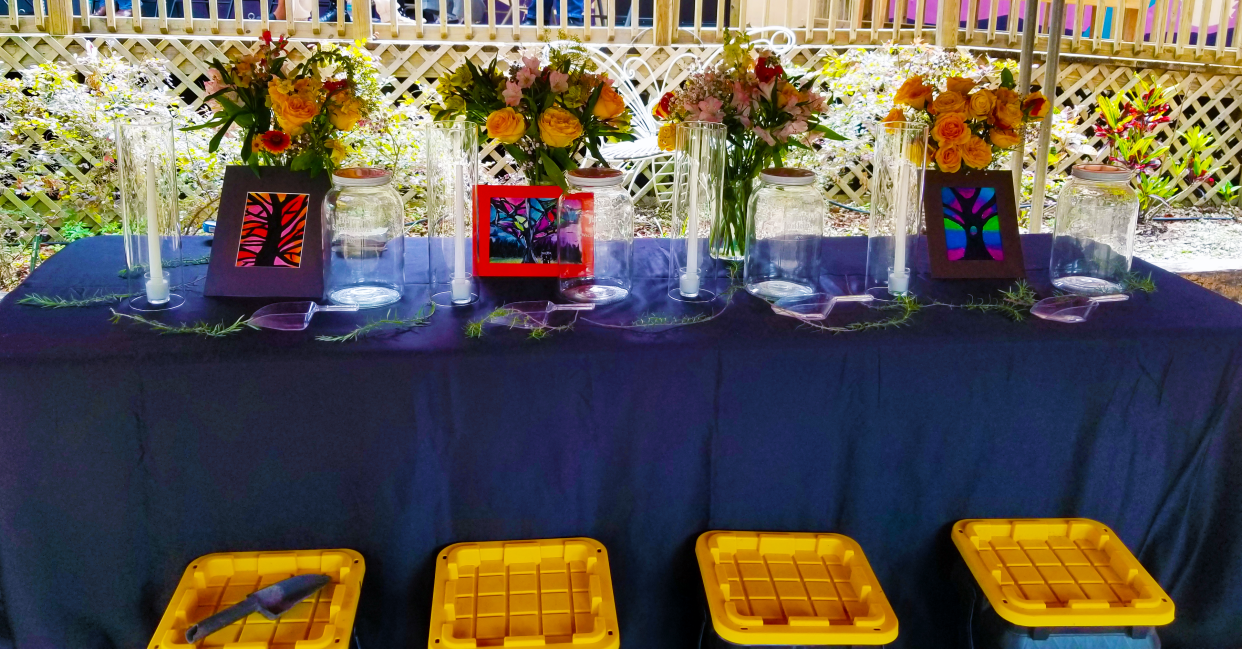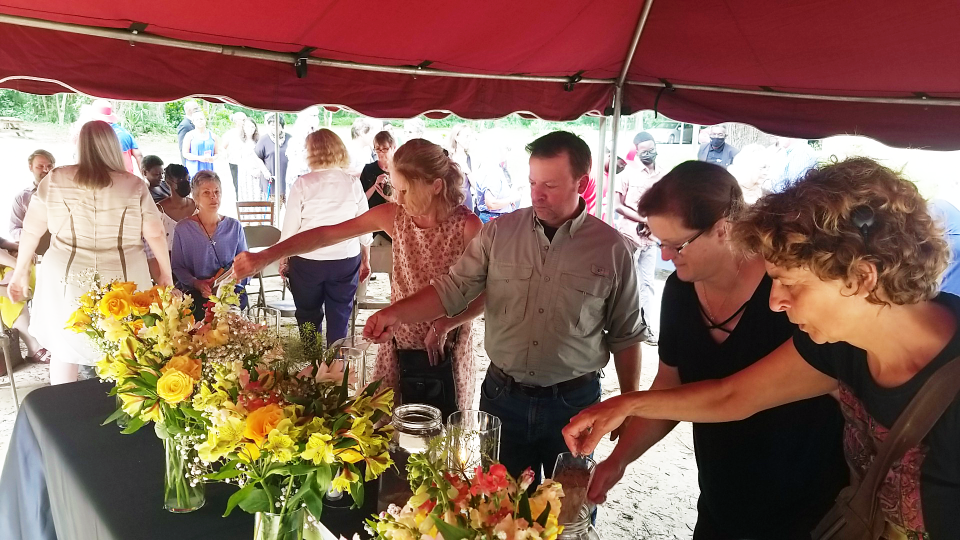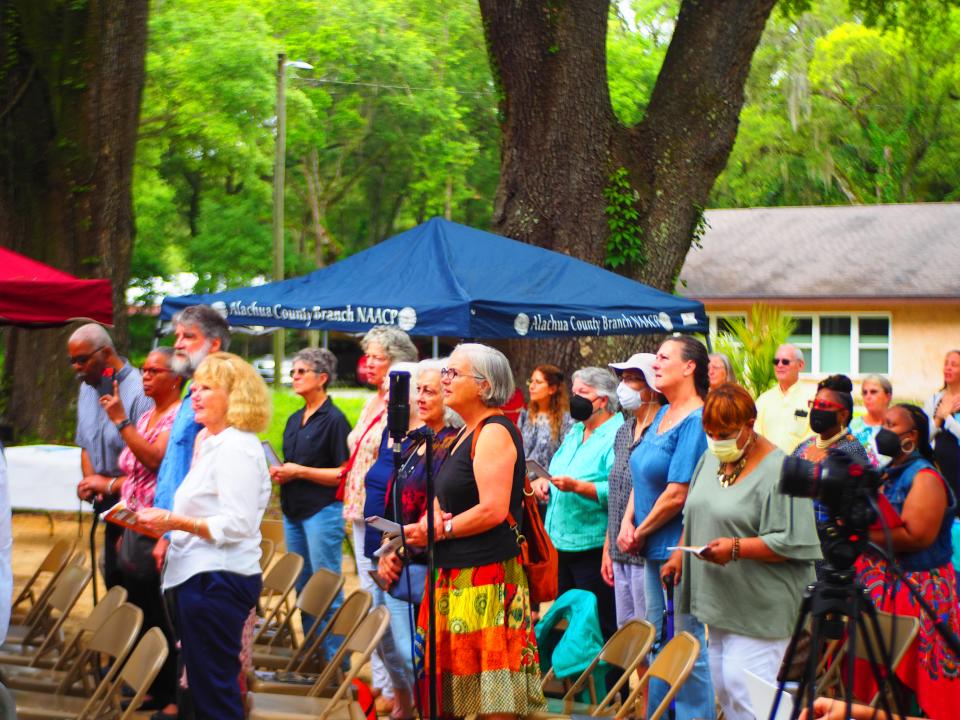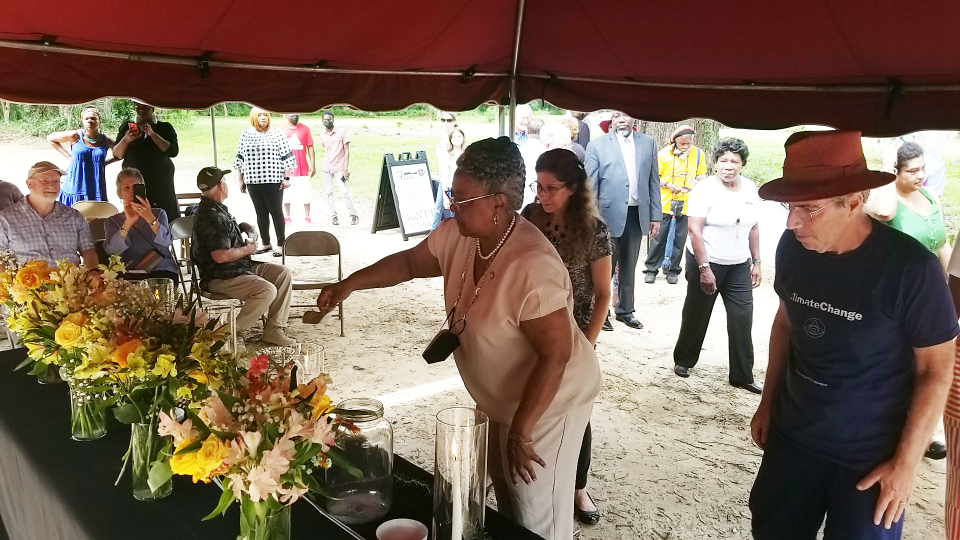Community Remembrance Project recognizes 'justice denied' during soil collection ceremony

In the early morning hours of Jan. 12, 1882, a mob of about 100 armed white men abducted a Black man named Henry Hinson from jail in Micanopy.
He was hung on a cedar tree near the town’s public square, where he would remain for the entire day for all to see.
The lynching is just one of dozens that are known to have occurred in Alachua County during the Post Reconstruction era from 1877 to 1950.
A ceremony to commemorate the life of Hinson and others who were lost at the hands of terrorism and injustice was held Saturday at the Willie Mae Stokes Community Center in Micanopy.
The observance, which consisted of collecting soil on or near a site where a lynching occurred, is part of a larger truth and reconciliation program in Alachua County — a program that focuses on researching and documenting the lynching of Black people that occurred in the county between 1877 and 1950.
“We realize that it’s not just what’s happened in the past, but really what’s happening today,” said Alachua County Commissioner Ken Cornell. “How is systemic racism, how are our own personal biases of our privilege and how we were raised, affecting our policies? And how can we change those policies to recognize the injustices of the past? But more importantly to make sure that we move forward in a way that includes everyone … and that their voice is always heard.”
Flag raising: Gainesville kicks off 2nd annual 'Journey to Juneteenth' celebration on Emancipation Day
More: Local descendants of lynching victims tell their story and impact on their lives
Opinion: Shining the light of truth on Alachua County’s painful history of lynching

Cornell said that he and other commissioners decided that it was important that the county recognize its role in truth and reconciliation.
The program serves to facilitate discussion on racial injustice in order to promote healing and reconciliation. This includes a community remembrance project that consists of eight subcommittees around the county.
Following a model from the Equal Justice Initiative, each subcommittee implements a combination of three programs, including the historical marker program, the soil collection program and the racial justice contest.
“There’s been a constant question of ‘why do we have to revisit the past,’” said Jiana Williams, a Micanopy commissioner. “Today, we take our efforts to recognize these individuals (that were lynched locally) and to begin to take steps towards the right direction in being able to come together and unite.”
During the ceremony, the soil is collected in clear jars from or near the site of a lynching. There have been five soil collection ceremonies around the county and Saturday’s event marked the sixth.

“No one was ever held accountable for the racial terror lynching of Henry Hinson,” Bill Harlan, subcommittee member, said. “During this era, Jim Crow segregation reinforced the myth of racial hierarchy and pervaded all aspects of public life.”
As the former wife of Hinson’s father, State Rep. Yvonne Hayes Hinson delivered the family tribute.
“Clearly, we are on sacred ground today, historical ground, heartbreaking ground,” she said. “The soil of a lynching site is a physical connection to the lives lost there, to the events and people who never received justice and who deserve to be remembered.”

One day before the ceremony, Florida celebrated Emancipation Day — a day where Union soldiers delivered news of freedom in Tallahassee to those formerly enslaved. The Emancipation Proclamation was signed by President Abraham Lincoln in 1863. It wasn’t until 1865 that word reached Florida that slaves were free.
Two years later in 1867, the first documented lynching occurred in the Micanopy-Wacahoota area.
“We’re here today to recognize justice denied,” said Bishop Christopher Stokes, pastor of New Beginning Christian Worship Center. “We’re not saying that any individual family that is alive today had any involvement with (lynching). Now, is an opportunity for us as a community, county, state and a nation to really sit down and … have an honest conversation about race.”
This article originally appeared on The Gainesville Sun: Micanopy Community Remembrance project holds soil collection ceremony

